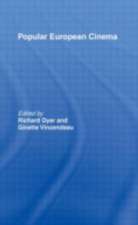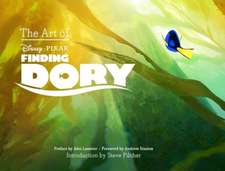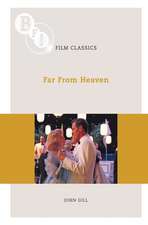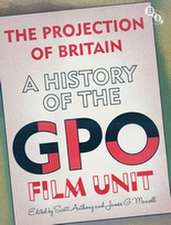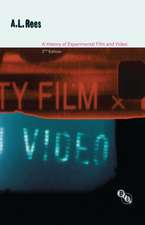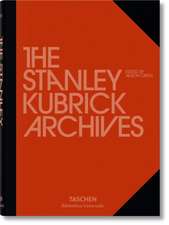Nino Rota: Music, Film and Feeling
Autor Richard Dyeren Limba Engleză Paperback – 12 sep 2010
| Toate formatele și edițiile | Preț | Express |
|---|---|---|
| Paperback (1) | 200.45 lei 6-8 săpt. | |
| Bloomsbury Publishing – 12 sep 2010 | 200.45 lei 6-8 săpt. | |
| Hardback (1) | 541.20 lei 6-8 săpt. | |
| British Film Institute – 31 aug 2010 | 541.20 lei 6-8 săpt. |
Preț: 200.45 lei
Nou
Puncte Express: 301
Preț estimativ în valută:
38.35€ • 40.05$ • 31.67£
38.35€ • 40.05$ • 31.67£
Carte tipărită la comandă
Livrare economică 15-29 aprilie
Preluare comenzi: 021 569.72.76
Specificații
ISBN-13: 9781844572106
ISBN-10: 1844572102
Pagini: 232
Ilustrații: 89 b/w photos
Dimensiuni: 155 x 235 x 18 mm
Greutate: 0.48 kg
Ediția:2010
Editura: Bloomsbury Publishing
Colecția British Film Institute
Locul publicării:London, United Kingdom
ISBN-10: 1844572102
Pagini: 232
Ilustrații: 89 b/w photos
Dimensiuni: 155 x 235 x 18 mm
Greutate: 0.48 kg
Ediția:2010
Editura: Bloomsbury Publishing
Colecția British Film Institute
Locul publicării:London, United Kingdom
Caracteristici
Major new book by Richard Dyer, a high profile and greatly respected film scholar
Notă biografică
RICHARD DYER is Professor of Film Studies at King's College, London, UK. He is the author of Stars (1979; 1998); Heavenly Bodies: Film Stars and Society (1987; 2004); Now You See It: Historical Studies in Lesbian and Gay Film (1990; 2003); Only Entertainment (1992; 2002); The Matter of Images: Essays on Representations (1993; 2002); volumes on Brief Encounter (1993) and Seven (1999) in the BFI Film Classics series; White (1999); The Culture of Queers (2002) and Pastiche (2006).
Cuprins
Introduction.- Tales of Plagiarism and Pastiche.- Nino Rota: Life, Works and Times.- Ironic Attachment.- Comedy.- Fellini.- Appendices.- Synopses.- Re-uses.- Filmography.- Bibliography.- Index.
Descriere
Descriere de la o altă ediție sau format:
The great Italian composer Nino Rota wrote some of the loveliest and most beloved of all film music, includingThe Godfathertrilogy, Zeffirelli's Shakespeares and Fellini's masterpieces8 1/2andLa Dolce Vita. Richard Dyer's study of Rota's life and work provides a detailed account of Rota's aesthetic and of his unique genius.
The great Italian composer Nino Rota wrote some of the loveliest and most beloved of all film music, includingThe Godfathertrilogy, Zeffirelli's Shakespeares and Fellini's masterpieces8 1/2andLa Dolce Vita. Richard Dyer's study of Rota's life and work provides a detailed account of Rota's aesthetic and of his unique genius.
Textul de pe ultima copertă
Nino
Rota
is
one
of
the
most
important
composers
in
the
history
of
cinema.
Both
popular
and
prolific,
he
wrote
some
of
the
most
cherished
and
memorable
of
all
film
music
–
forThe
Godfather
Parts
I
and
II,The
Leopard,
the
Zeffirelli
Shakespeares,
nearly
all
of
Fellini
and
for
more
than
140
popular
Italian
movies.
Yet
his
music
does
not
quite
work
in
the
way
that
we
have
come
to
assume
music
in
film
works:
it
does
not
seek
to
draw
us
in
and
identify,
nor
to
overwhelm
and
excite
us.
In
itself,
in
its
pretty
but
reticent
melodies,
its
at
once
comic
and
touching
rhythms,
and
in
its
relation
to
what's
on
screen,
Rota's
music
is
close
and
affectionate
towards
characters
and
events
but
still
restrained,
not
detached
but
ironically
attached.
In this major new study of Rota's film career, Richard Dyer gives a detailed account of Rota's aesthetic, suggesting it offers a new approach to how we understand both film music and feeling and film more broadly. He also provides a first full account in English of Rota's life and work, linking it to notions of plagiarism and pastiche, genre and convention, irony and narrative. Rota's practice is related to some of the major ways music is used in film, including the motif, musical reference, underscoring and the difference between diegetic and non-diegetic music, revealing how Rota both conforms to and undermines standard conceptions. In addition, Dyer considers the issue of gay cultural production, Rota's favourte genre, comedy, and his productive collaboration with the director Federico Fellini.
In this major new study of Rota's film career, Richard Dyer gives a detailed account of Rota's aesthetic, suggesting it offers a new approach to how we understand both film music and feeling and film more broadly. He also provides a first full account in English of Rota's life and work, linking it to notions of plagiarism and pastiche, genre and convention, irony and narrative. Rota's practice is related to some of the major ways music is used in film, including the motif, musical reference, underscoring and the difference between diegetic and non-diegetic music, revealing how Rota both conforms to and undermines standard conceptions. In addition, Dyer considers the issue of gay cultural production, Rota's favourte genre, comedy, and his productive collaboration with the director Federico Fellini.


